Marine PV-Diesel
Generator-Energy Storage
Hybrid System
Marine PV-Diesel-Energy Storage Hybrid Power System (solar power+ diesel generator+ energy storage) combines the advantages of multiple energy technologies, demonstrating exceptional environmental sustainability, cost efficiency and operational reliability in marine applications.
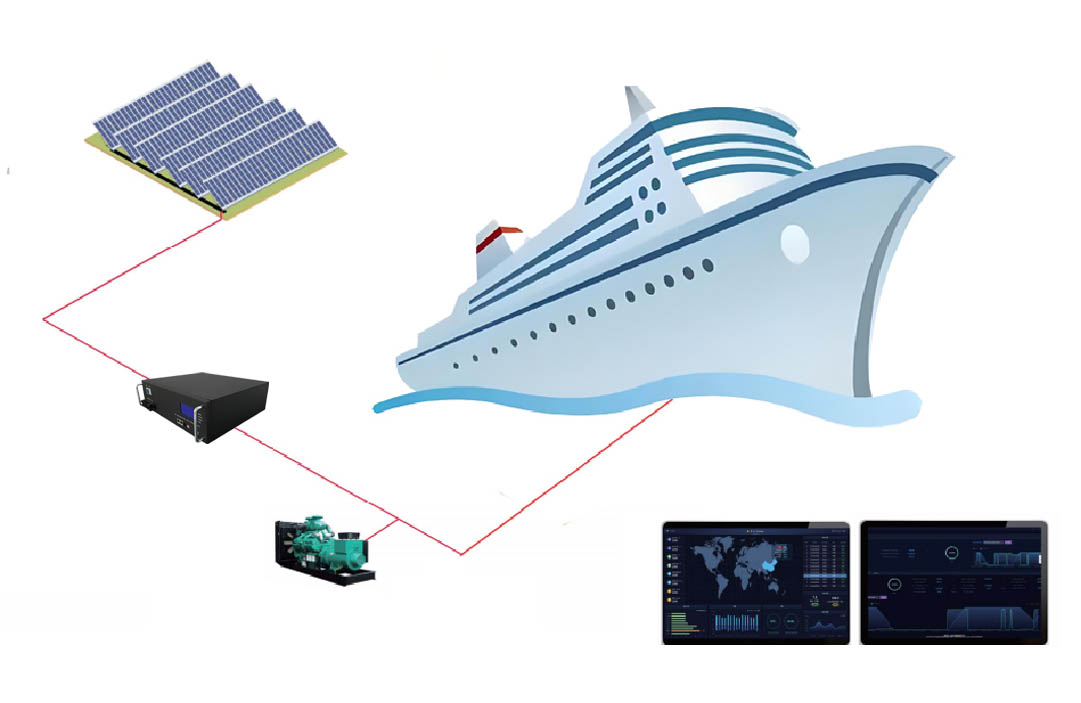
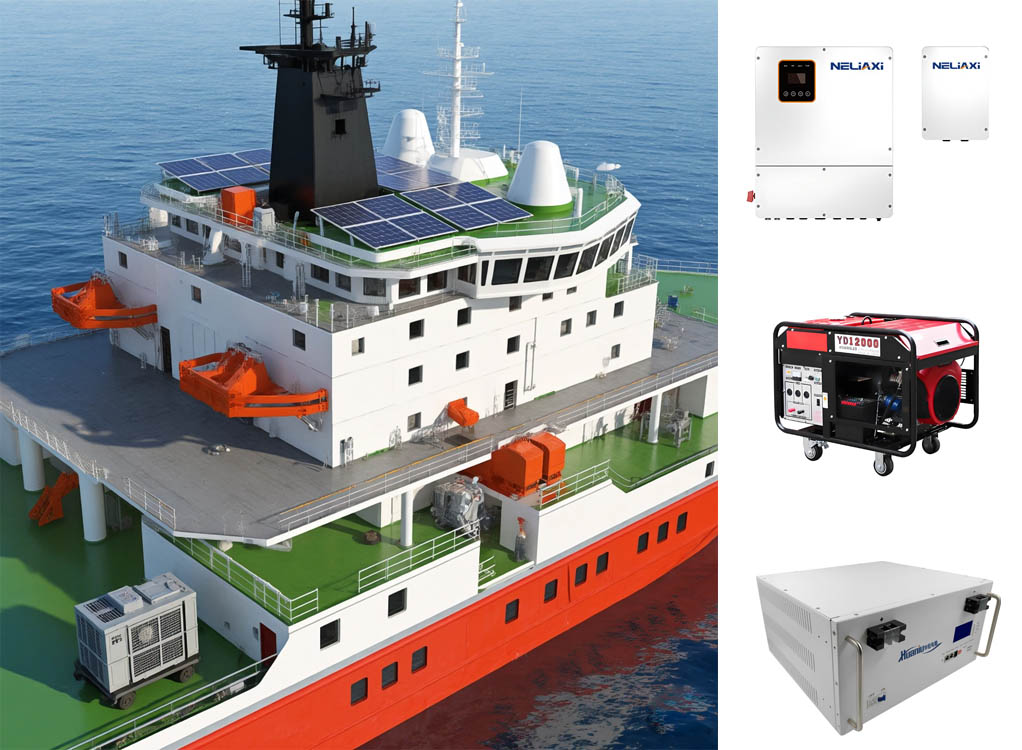
● Reduce carbon emissions:
○ Photovoltaic power generation has zero emissions, reduces the operating time of diesel engines, directly reduces CO ₂ (carbon dioxide), SO ₓ (sulfur oxides), and NO ₓ (nitrogen oxides) emissions, and meets the IMO (International Maritime Organization) 2030/2050 emission reduction targets.
○ Case: After installing a photovoltaic system on a cargo ship, the annual emission reduction of CO ₂ is about 200 tons (equivalent to the annual absorption of 5000 trees).
● Silent operation:
○ Under pure solar energy storage mode, there is no noise pollution, making it suitable for ecologically sensitive areas such as polar research ships and tourist boats.
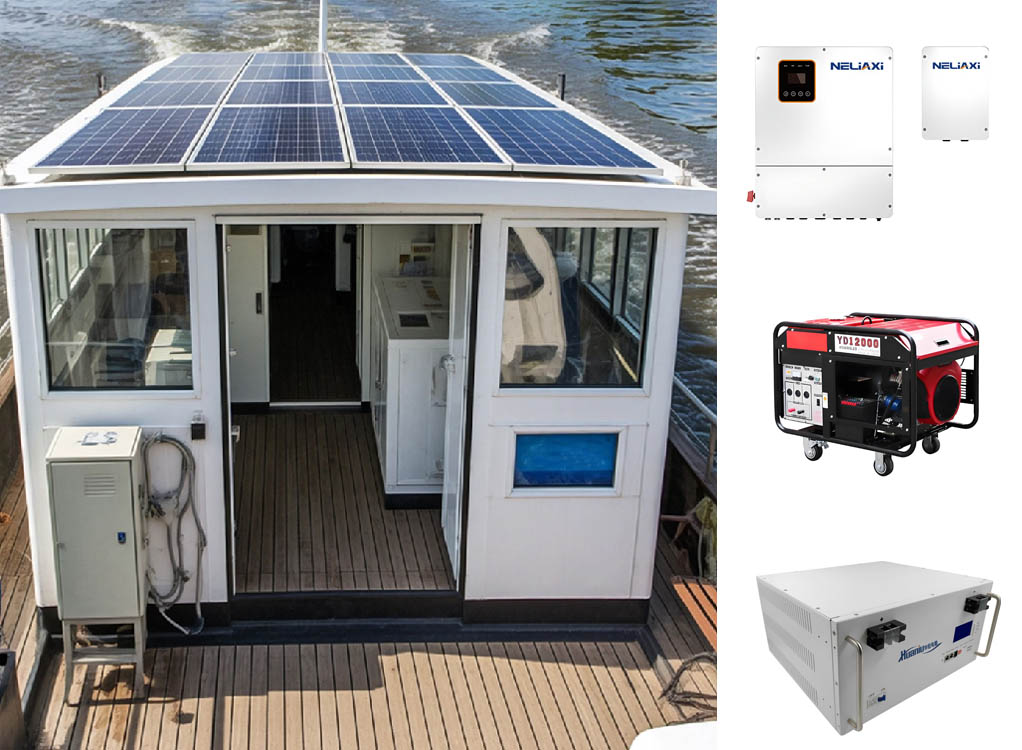
● Fuel cost savings:
○ Solar power generation has almost zero marginal cost, and areas with sufficient sunlight can reduce diesel consumption by 20-40%.
○ Case: After adopting a PV-diesel generator-energy storage hybrid system, an inland ferry saved over USD70,000 in fuel costs annually.
● Reduced maintenance costs:
○ Reducing the running time of diesel engines, extending their lifespan, and lowering maintenance frequency.
○ Energy storage batteries (such as LiFePO ₄) have a cycle life of over 6000 times and long-term costs lower than single diesel generator systems.
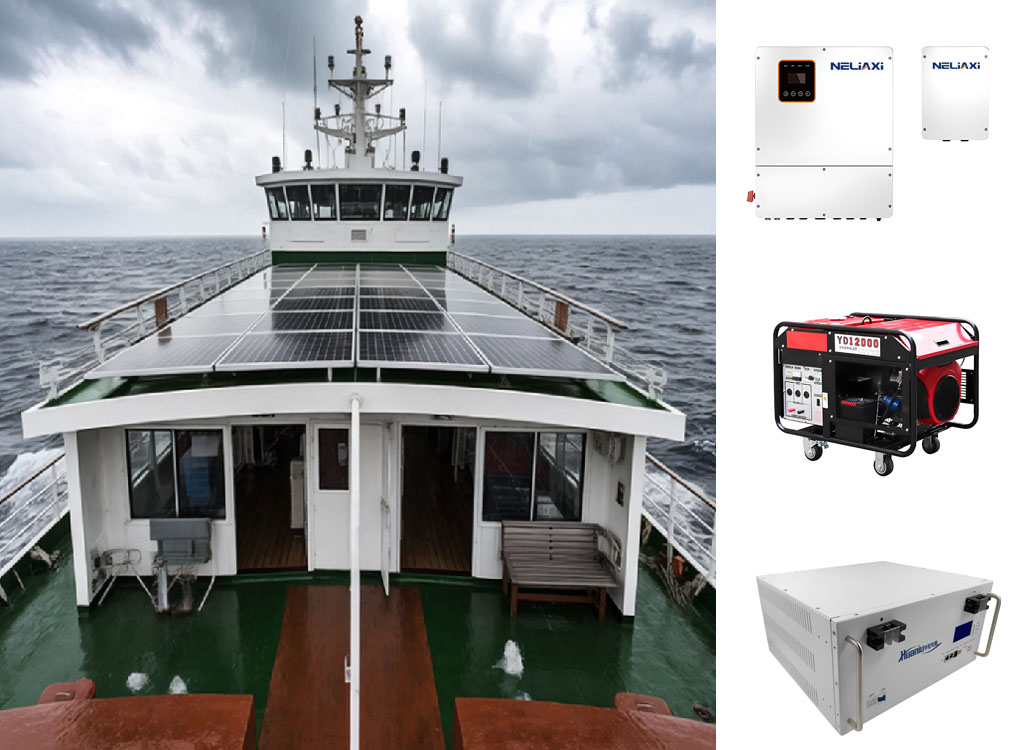
● High reliability :
○ Solar power, energy storage, and diesel generator power, three power sources to avoid the risk of power outages caused by any single power source failures.
○ Under extreme weather conditions (such as continuous cloudy days), the diesel engine automatically switches on to ensure the continuous navigation of the ship.
● Black start capability:
○ The energy storage system can quickly restore power supply in critical cases when the entire ship experiences a power outage.
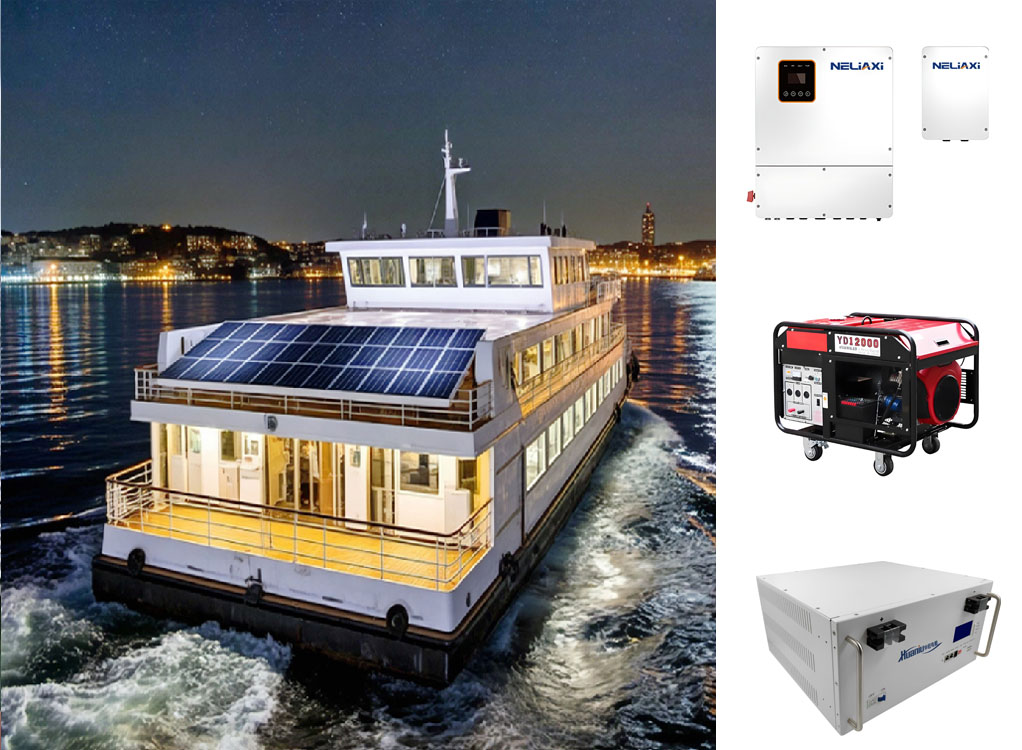
● Modular design:
○ The solar system power and energy storage capacity can be flexibly adjusted according to the type of vessel.
○ Small vessels: mainly powered by solar system (such as yachts covered with 5kW solar panels+100kWh batteries); Large cargo ships: mainly powered by diesel engines, supplemented by a solar system (such as installing 200kW solar panels on the deck).
● Intelligent switching:
○ The Energy Management System (EMS) automatically optimizes energy allocation, such as prioritizing the use of photovoltaic power during the day and charging surplus electricity; Switch to energy storage or diesel generator at night or under high load.
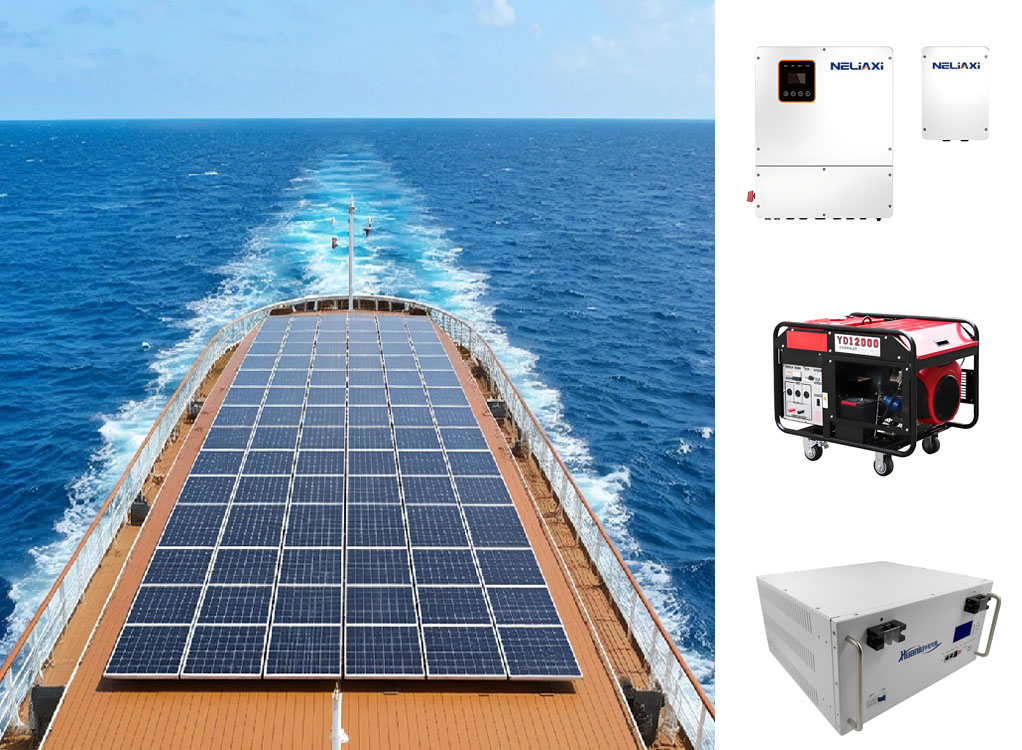
● Subsidies and Certification:
○ Many countries provide tax exemptions (such as the EU ETS) and port fee discounts for green ships.
○ Obtaining green ship certifications (such as IMO's EEXI and CII ratings) enhances market competitiveness.
● Future compatibility:
○ The system can be upgraded and integrated with new technologies such as hydrogen fuel cells and wind power generation to meet the trend of zero carbon shipping.
